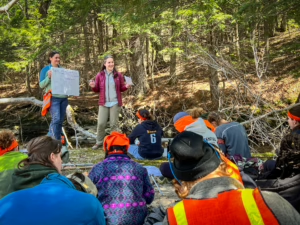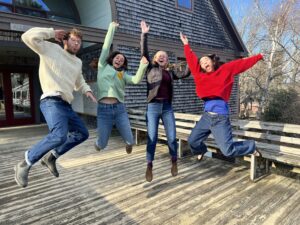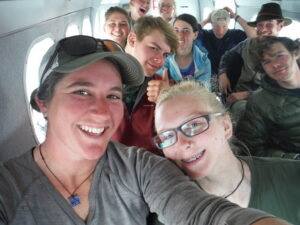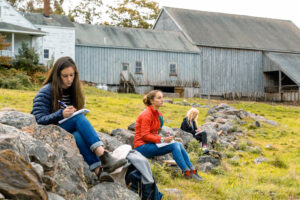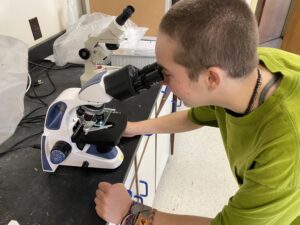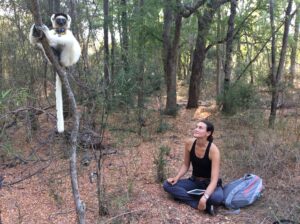The culmination of a Maine Coast Semester student’s academic work is an independent research project called a human ecology capstone, or HEC. Last week, Semester 58 students met with their advisors to choose their capstone topic and map out how to begin. HECs give students a chance to venture deeply into a subject that interests them within the cross-disciplinary realm of human ecology, which Maine’s College of the Atlantic, a leader in this field, defines as “the study and improvement of the relationships between humans and our social and natural communities.”
With a question or goal in mind, students do research, conduct interviews, and prepare a presentation to give at the end of the semester to Chewonki students and faculty. We want them to make a real contribution to knowledge or a practice based in the Chewonki ecosystem, the Gulf of Maine bioregion, or the community to which the student returns from Chewonki.
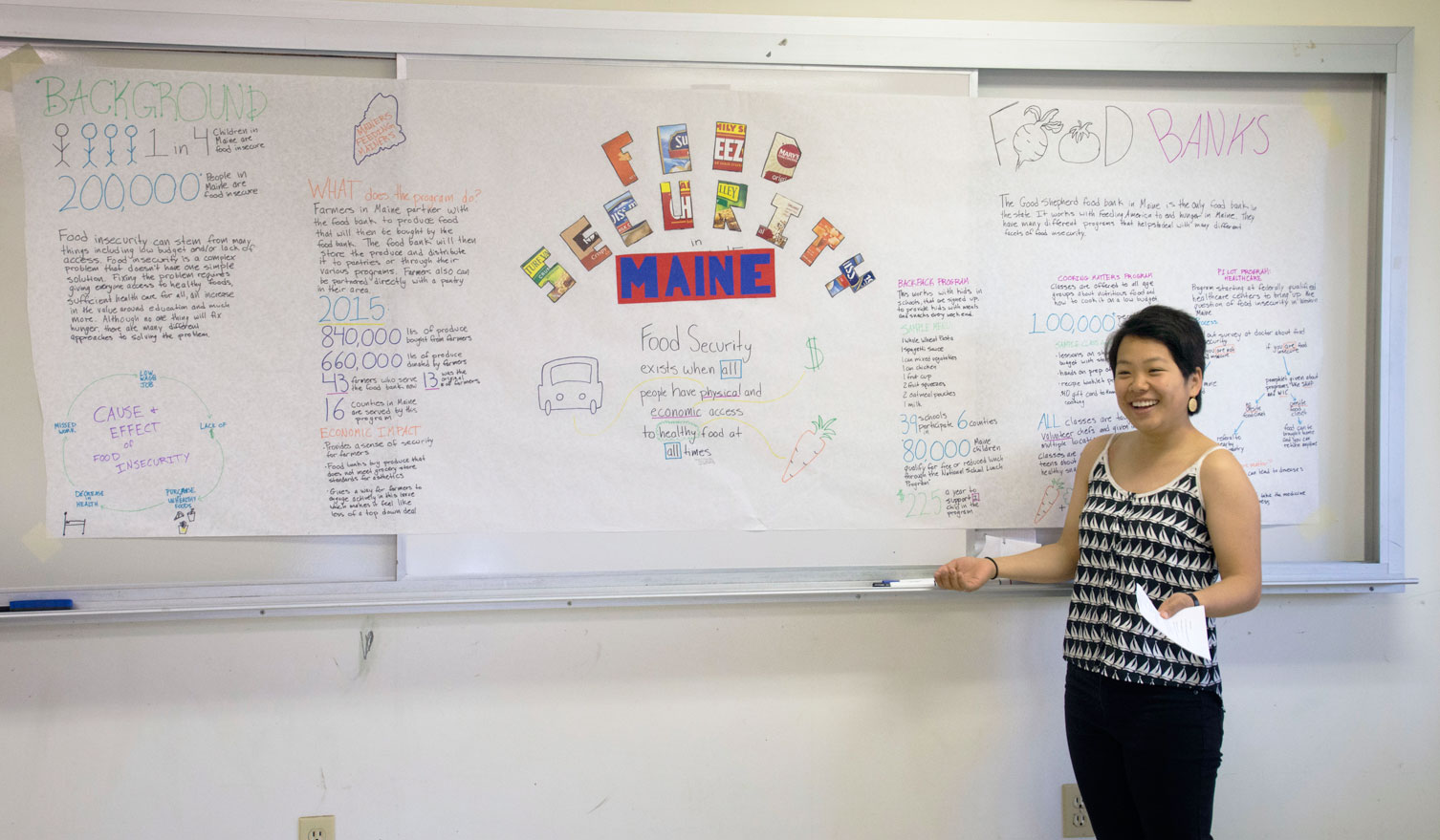
Some students choose scholarly projects that they express through a paper and an oral presentation (for example, echolocation in bats or the impact of microplastics on Maine’s coastal ecosystem, with policy recommendations; or a collection of place-based poetry). Others create something as part their HECs, making an object (a wooden skateboard, a podcast or video, a photography portfolio) or learning a craft (tanning hides, felling a tree, bee-keeping). Still others design a plan to execute after the semester ends (establishing a community garden in their town; setting up a zero waste initiative at their school).

HEC week–the last academic week of the semester–is always full with the enthusiasm of students sharing ideas that really excite them. We’re looking forward to seeing what Semester 58 will have to teach us.
